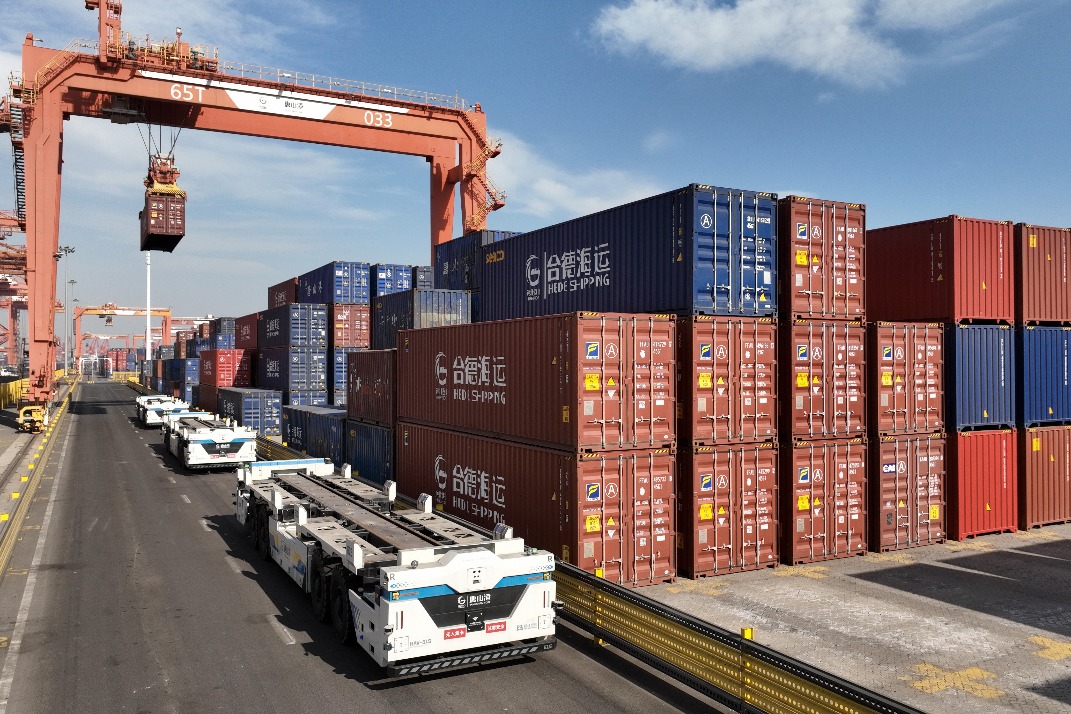Success of Indonesia smelter inspires Hongqiao expansion


China Hongqiao Group Co Ltd, one of the world's largest aluminum producers, will expand its business in Indonesia.
Hongqiao Group has already completed several years of successful operations in Indonesia, a member of the Association of Southeast Asian Nations, a bloc with which China is seeking to enhance its trade and deepen investment cooperation.
In 2013, when Chinese President Xi Jinping paid a state visit to Indonesia, Hongqiao Group signed an agreement with Winning Investment (HK) Co Ltd and Indonesia-based PT Cita Mineral Investindo Tbk to establish PT Well Harvest Winning Alumina Refinery, a joint venture for an alumina smelter at Ketapang district in West Kalimantan province, Indonesia.
Well Harvest Winning turned out to be the first giant alumina project that Chinese companies have invested in overseas.
The smelter processes locally sourced bauxite into alumina, a material for production of aluminum. It was designed to have annual capacity of 2 million metric tons, which was made possible through two-phase construction of production lines.
"When the second phase of the project is completed by this year-end, Well Harvest Winning's production capacity will double to 2 million tons," said Zang Jinjun, general manager of Well Harvest Winning.
"We also plan to increase output, extend our presence across the industry chain, and foray into downstream integration of aluminum and electricity production."
Production in the first phase of the project started in the first half of 2016, and the unit has been operating at full capacity since 2017. Well Harvest Winning has been profitable ever since.
"Chinese enterprises bring capital, technology, and rich and useful experiences in management to their overseas investments and projects. We work with local partners based on each other's strengths to tap the host nation's potentials in labor, resources and market," Zang said.
"Through such cooperation, there will be win-win outcomes for both parties."
So far, Well Harvest Winning has produced more than 5 million tons of primary alumina, and revenues have reached about $1.7 billion.
Well Harvest Winning employs 3,100 locals, among whom 80 percent are residents from nearby villages. It has also paid more than $85 million to the local tax system, while creating more jobs indirectly by way of purchasing services and products from local enterprises.
With the completion of the second phase of the project, the company will hire more and contribute more to local development, Zang said.
The success of the factory has also encouraged a group of Chinese enterprises to invest in Indonesia and establish businesses in alumina smelting.
Jia Kai, public relations director for the overseas business unit of Hongqiao Group, said the company is confident about the business prospects in the ASEAN region.
"It has a relatively mature industrial chain system and very promising economic development prospects," Jia said.
"The signing of the Regional Comprehensive Economic Partnership agreement further promotes the integration of regional economies, and for manufacturing players like us, the RCEP can strengthen the industrial collaboration of member countries, enhance the division of labor, and increase the overall competitiveness."
As the first large-scale alumina production company in Indonesia, the joint venture has also made contributions to local development in areas like infrastructure construction, labor training, and technical upgrades in the alumina industry, Jia said.
"That has improved the local business environment, resulting in more business opportunities and better investment prospects," Jia said.
Well Harvest Winning has placed great importance on implementing projects relating to corporate social responsibility. It has strengthened investments to help with coastline restoration, firefighting and earthquake relief. It has also helped build bridges and roads, and made donations for schooling and free medical care.
Jia said the signing of the RCEP not only demonstrates China's unwavering determination to continuously open up to the outside world, but also is a victory of free trade and multilateralism.
"The RCEP increases certainty for Hongqiao Group to further expand overseas business despite risks and challenges arising from bumps in free trade in the past few years," he said.
Data from China's General Administration of Customs showed the nation's trade with the ASEAN reached $336.34 billion in the first five months of this year, up 39.1 percent year-on-year, denominated in US dollars.
"China-ASEAN economic and trade cooperation has brought new opportunities for the commercial development of the region. It has also given the sluggish world economy an impetus for growth," Zang said.
He said he believes China-ASEAN trade and investment are set to maintain strong growth momentum.
- Trade and investment are set for bloc boost
- China's Baiyun Intl Airport becomes world's busiest hub in 2020: report
- Opening to spur service sector growth
- International hub in Shanghai's Hongqiao expected to connect domestic, world markets
- First proton therapy center for children in China established




































